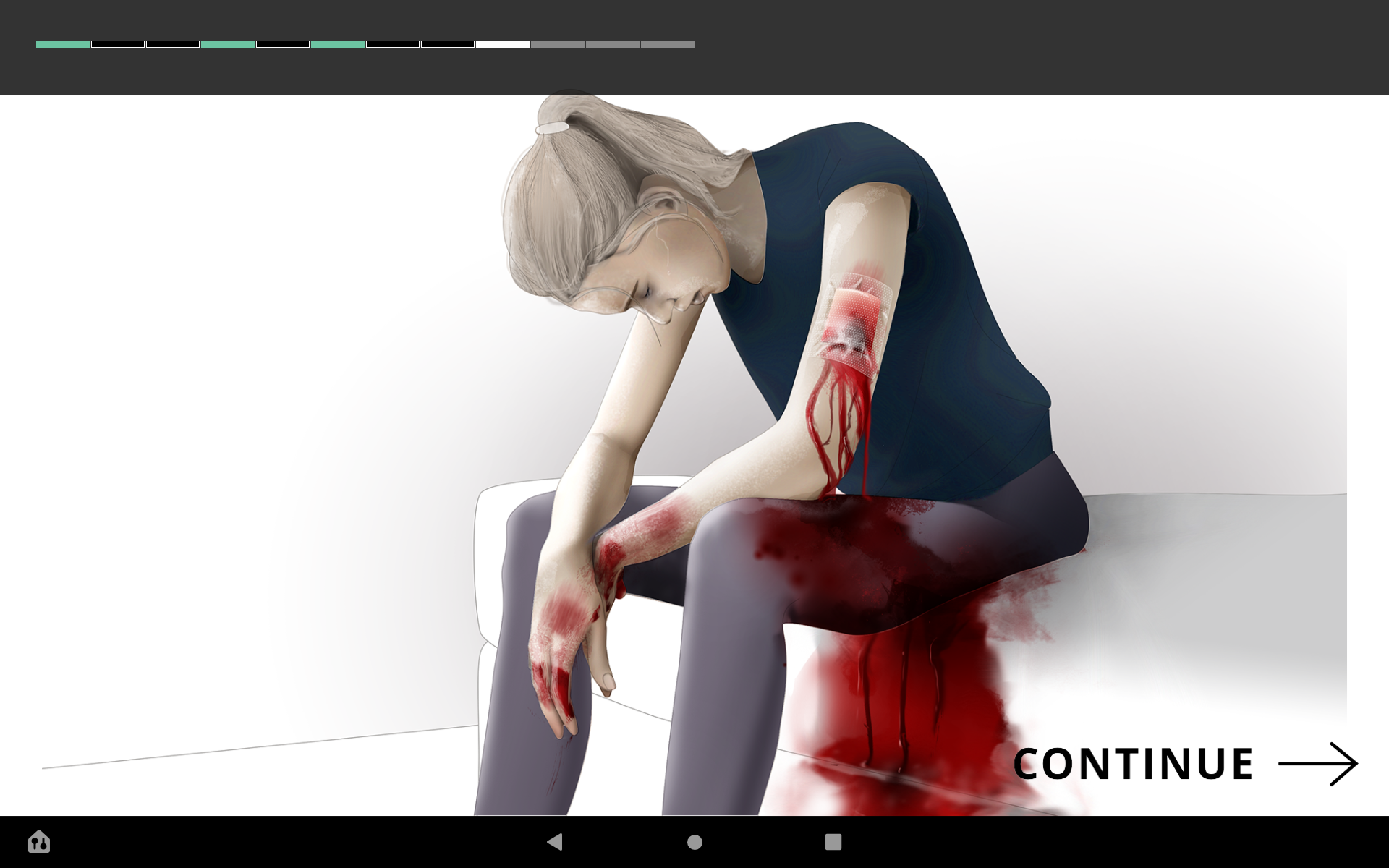case study
Tourniquet Training
TOURNIQUET ERROR RECOVERY TRAINING FOR EMERGENCY RESPONDERS
FUNDED BY: 711th Human Performance Wing, Air Force Research Laboratory
PROBLEM: Training often adopts an error avoidance strategy, which emphasizes how to do procedures properly every time. In the real world, however, mistakes are unavoidable. Research suggests that training focused on error recognition and recovery could play a crucial role in improving human performance. Error recovery training prepares learners to recognize error cues and provides effective strategies to mitigate their negative impact. With the ultimate goal to improve outcomes for patients with battlefield injuries, we applied Error Recovery Training concepts to create a training module for Emergency Medical Technicians (EMT) learning to apply tourniquets.
APPROACH: Applied Decision Science led an effort to design and test a tablet-based error recovery training module that could be completed in 30 minutes without an instructor. Our goal was to create targeted training that complemented the existing EMT course, and would lead to greater skill retention and task transfer. The Tourniquet Troubleshooting Training App begins with a 5-minute video describing common tourniquet errors and strategies for recovering from them. Learners get an opportunity to practice recognizing errors via a set of digital flashcards depicting a range of injuries. A graphic novel encourages learners to imagine applying their knowledge about recovering from tourniquet errors in the context of brief scenarios. Reflection activities include a series of quizzes designed to help learners identify their own knowledge gaps and misunderstandings.
IMPACT: Preliminary data from an evaluation study suggest that EMT students exposed to the Tourniquet Troubleshooting Training app performed significantly better on a knowledge test, were better able to transfer what they had learned to novel settings as measured by a situational judgment test, and were better at recognizing tourniquet errors than their peers who received traditional training alone. This innovative training approach has the potential to equip EMTs with the skills needed to effectively react in the presence of life-threatening hemorrhage injuries.
Militello, L. G., Wagner, E., Winner, J., Sushereba, C., & McCool, J. (2021). Error recovery training literature review: Implications for emergency field medicine. In Proceedings of the Human Factors and Ergonomics Society Annual Meeting, 65, 495-499.
Access Online


